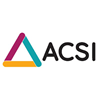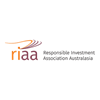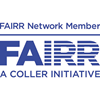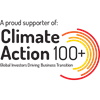
Responsible Investment at Rest
Responsible investment can help our members grow their super while contributing to a more sustainable future

We're a Responsible Investment Leader
Rest is recognised as a Responsible Super Fund Leader 2023 by the Responsible Investment Association Australasia (RIAA). This acknowledges our commitment to good governance and accountability; implementation and measurement of responsible investment approaches through activities such as engagement and voting and ESG integration; proper measurement of outcomes; and our high degree of transparency.
For more information on our responsible investment approach, please read our Sustainability, Responsible Investment and Climate Change Supplement.
Rest considers ESG factors across all investment decisions.
At Rest, we know responsible investing is important to many of our members. That’s why we offer an option that seeks to maximise returns over the long term by investing in a diversified portfolio with enhanced environmental, social and governance (ESG) investment characteristics, called Sustainable Growth.
Examples of ESG factors
Environmental
• Climate change
• Greenhouse gas emissions/carbon emissions
• Energy efficiency
• Waste management
• Pollution to land, air and water
• Water availability
Social
• Modern slavery
• Human rights
• Indigenous rights
• Workforce e.g. fair pay, health and safety, wellbeing
• Diversity and equal opportunities
• Animal welfare
Governance
• Corporate governance e.g. culture, conduct and accountability
• Board diversity and composition
• Executive remuneration
Our members’ views on responsible investment
We surveyed1 Rest members to better understand their thoughts on responsible investment.
- 4 out of 5 Rest members said they believed that super funds have a responsibility towards society when it comes to investing.
- 84% of members want Rest to target industries or companies that are responsible and have good investment performance.
- 75% of Rest members expect their super to invest responsibly without impacting return on investment.
1Research conducted by Lonergan Research via focus groups in July 2019 (of 25 Rest members) and online survey in Sept-Oct 2019 (of 2,030 Rest members) aged 18-29, 30-54 and aged 55+.
Rest responsible investment explained
The insights from our research helped create our responsible investment approach which is supported by the series of fund and asset class level initiatives below. Our Responsible Investment Policy is here.
Integrating ESG into our investment decisions
We take important steps to make sure ESG factors are considered across our investment decisions. Please refer to the Investment Guide for more details of the ESG factors we considered in the investment process. This includes both the assets we invest in and the investment managers we work with.
When we research, select, appoint and monitor investment managers, we look at how well they’ve embedded ESG considerations into their processes. We also consider how they manage existing and evolving ESG factors like climate change and workforce issues (eg carbon footprint, exposure to stranded assets, fair pay, and gender equality).
A spotlight on climate change
We recognise that a company’s approach to climate change has the potential to influence long-term investment performance – and the value of your retirement savings.
Our responsible investment approach encourages investment managers and the companies we invest in to consider both the financial risks and opportunities related to climate change.
Advocating for positive change
Our industry collaborations help promote good ESG practices by increasing awareness and education on ESG issues. They also help us engage with companies and government to positively influence ESG performance and policy.
The PRI1 works to understand the investment implications of ESG factors and helps investors incorporate them into investment and ownership decisions. Being a signatory informs Rest's responsible investment approach.
Australian Council of Superannuation Investors (ACSI) exists to provide a strong voice on financially material ESG issues, particularly covering Australian shares.
As a member of ACSI, Rest receives support in exercising active ownership, through ACSI’s ongoing research, engagement, advocacy and voting recommendations in relation to ASX 300 companies. For details on Rest’s active ownership, please read our Sustainability, Responsible Investment and Climate Change Supplement.
Rest sits on both the ACSI Board and the Member Advisory Council and as part of that role, contribute to ACSI’s program of work.
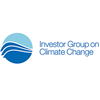
The Investor Group on Climate Change (IGCC2) supports investment beneficiaries by encouraging government policies and investment practices that address the risks and opportunities of climate change.
During 2022/23, Rest was represented on the Transparency & Thought Leadership, Physical Risk & Resilience, Corporate Engagement and Policy and Advocacy working groups. This membership informs Rest’s responsible investment approach.
RIAA provides a strong voice on ESG issues for members and is dedicated to ensuring capital is aligned with achieving a healthy society, environment and economy. Rest is represented on the RIAA First Nations Peoples’ Rights, Human Rights, and Nature working groups.
This membership informs Rest’s responsible investment approach, particularly across our Sustainable Growth option.
The Australian Sustainable Finance Institute (ASFI) is committed to realigning the finance sector in Australia to create a more sustainable and resilient financial system. ASFI operates across the whole financial system in Australia to address systemic challenges across climate, environment and social aspects of the sustainable finance agenda. ASFI informs Rest’s approach to responsible investment, and input into sustainable finance policy and advocacy.
Through our membership of ASFI, we are supporting the development and implementation of an Australian Sustainable Finance Strategy.
The Global Real Estate Sustainability Benchmark (GRESB3) is the leading ESG benchmark for real estate and infrastructure investments across the world. Rest uses GRESB data and analytical tools to manage ESG risks, capitalise on opportunities and engage with investment managers.
During 2022/23, the GRESB Infrastructure Net Zero Working Group was established to research and review existing Net Zero frameworks to begin summarising common practices and divergences. Rest was represented on the working group. The output of this work will inform the GRESB Infrastructure Standards Committee in defining aspects of the scope of Net Zero frameworks and how to demonstrate a credible journey towards Net Zero in the GRESB Standards.
We are a member of the FAIRR Initiative's investor network, which aims to help to build a more sustainable food system by raising awareness of the material risks and opportunities present in global protein supply chains. As a member of FAIRR, we have access to resources to help inform identification of these specific ESG-related risks and opportunities in the Australian and overseas shares.
Climate Action 100+ is an investor-led initiative involving 700 investors, responsible for over $68 trillion USD in assets under management, engaging the world’s largest listed greenhouse gas emitting companies on improving climate change governance, cutting emissions and strengthening climate-related financial disclosures. Rest is an investor signatory to this initiative, which helps to inform us about climate-related risks in Australian and overseas shares.
1. Principles for Responsible Investment is a registered trademark of the PRI Association.
2. Investor Group On Climate Change is a registered trademark of Investor Group on Climate Change Australia/ New Zealand Inc.
3. GRESB® is a trademark owned by GRESB BV. All trademarks used in this document are used with the relevant trademark owners consent.
Contributing to a sustainable future
Negative Screening
Subject to limitations set out in Section 7 of the Investment Guide (effective 30 September 2024) and Section 10 of the Rest Pension Product Disclosure Statement (effective 17 February 2025). For the investment options to which this section applies (refer to the exclusions following), our approach to general exclusions. otherwise known as negative screens, involves the exclusion of companies from our investment portfolio that are directly involved in certain industries, subject to the ‘Exceptions and limitations’ following. This is outlined below:
Tobacco Manufacturers
A company directly involved (i.e. 0 per cent revenue threshold) in the production of tobacco and nicotine alternatives.
Controversial Weapons
We screen out companies directly involved in the production of controversial weapons. While there is no official global definition of controversial weapons, for Rest, it includes cluster bombs, landmines, uranium weapons and chemical and biological weapons or their key parts.
Thermal Coal Mining
Rest does not invest in or hold shares in listed companies that derive 10 per cent or more of total annual revenues from thermal coal mining, unless certain climate-related criteria can be met. To meet the climate-related criteria, the company must have a credible net zero emissions by 2050 target* or be committed to setting targets for greenhouse gas emission reduction grounded in climate science as assessed by the Science Based Targets initiative.
*. In assessing the credibility of a company’s net zero emissions by 2050 target, third party research is only available for certain industries. The credibility of a company’s net zero emissions by 2050 target may be assessed by Rest internally (based on industry recognised frameworks) where third party research is limited or not available.
Exceptions and limitations
The exclusions do not apply to Rest’s investment derivatives and may not apply to investments in certain investment structures or instruments (such as financial products that give the holder exposure to a pool of loans, bond or other debt products) or collective investment vehicles (including private funds and exchange-trade funds) where Rest is unable to require and ensure such exclusions are applied by the manager of the vehicle. In respect of Rest’s investments in private funds, Rest may have the power to opt out of certain investments which do not comply with the general exclusions or dispose of its interests in private fund if the manager of the private fund acquires investments which do not comply with general exclusions.
Rest monitors its general exclusions, otherwise known as negative screens, on investments on a periodic basis. Third party research is generally used when determining and applying screens and exclusions. This includes information on a company’s revenue which is generally based on total or gross annual revenue. However, in the absence of such, net sales or operating revenue as reported by the company in its financial statements may be used.
Rest’s ESG analysis, including determining and applying general exclusions, otherwise known as negative screens, on investments may be impacted by limitations in research of third party data providers. Temporary data quality issues (eg delays or inaccuracy) may arise from time to time, and this may result in the portfolio holding investments that do not meet the above criteria, however this is typically short term. If an existing investment is identified as not subsequently meeting the criteria of an applicable exclusion, Rest will seek to dispose or manage that investment in the best financial interests of its members taking into consideration relevant factors such as liquidity, market conditions and investment structure.
Additional exclusions, otherwise known as negative screens, apply in respect of the Sustainable Growth investment option. Please refer to Section 8 of the Investment Guide (effective 30 September 2024) and Section 11 of the Rest Pension Product Disclosure Statement (effective 17 February 2025) for more information.
Sustainability themed investments
Our sustainability themed investments can combine strong long-term returns for our members with specific ESG outcomes (ie. through the use of renewables or the reduction of emissions).
Providing clean energy for Western Australians
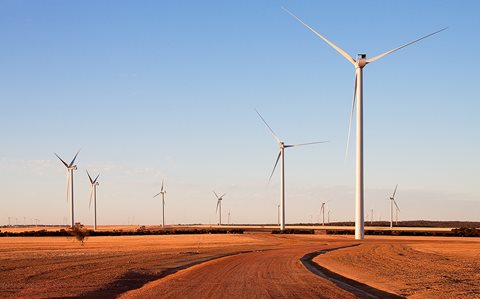
Rest fully owns Collgar Wind Farm, a renewable power project at Merredin in Western Australia’s (WA) central wheatbelt.
Using technology to lower carbon emissions
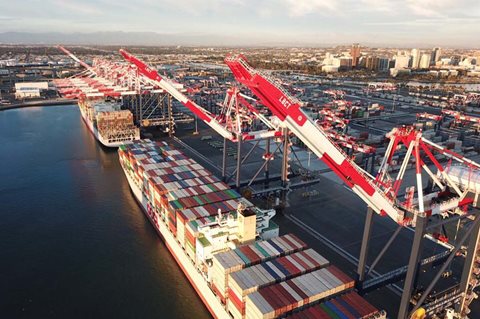
In 2019, Rest acquired an interest in Long Beach Container Terminal (LBCT), alongside Macquarie Infrastructure Partners.
LBCT, located in Long Beach, California, is one of the greenest port terminals in the world. They use electricity to power their major plant, including the cranes which lift the containers to and from the ships, the guided vehicles which transport the containers around the terminal, and the large auto stacking cranes which load/unload containers from trucking companies.
Traditionally this equipment has been powered by diesel fuel, which emits diesel particles into the atmosphere. By converting major plants to electric power, LBCT avoids these emissions.
Actively managing our investments
There are two ways we can influence the companies we invest in on ESG matters – through engagement and share voting.
Engagement
Through engagement, we seek to build knowledge in a company to better understand its approach and priorities related to ESG factors, including climate change. Where we consider it appropriate to do so, having regard to our duties, including the duty to act in the best financial interests of members, Rest may advocate for change.
We seek to engage with our most significant company holdings as well as with companies where we believe performance could be improved with respect to industry standards, community expectations or where there may be reputational issues that could adversely affect value.
We take a three-pronged approach to company engagement:
- Service provider engagement through the Australian Council of Superannuation Investors (ACSI) with respect to ASX300 companies
- Collaborative engagement with industry partners and like-minded investors, including Investors Against Slavery and Trafficking Asia Pacific (IAST APAC) and Climate Action 100+
- Direct engagement with Australian companies.
Our external managers also engage companies in our Australian and international share portfolios on a range of ESG factors, including climate change, modern slavery, decent work and corporate governance.
Our preference is to work collaboratively with other like-minded investors wherever possible to share knowledge, pool resources and influence investee companies and other stakeholders on areas of common concern.
Share voting
Rest recognises its responsibilities of being a universal owner, which includes communicating members' long-term investment interests to companies and investment managers in which the fund invests. Consistent with our members’ best financial interests, our voting activities aim to protect and enhance sustainable, long-term value creation of our members' equity holdings.
Rest has ultimate responsibility for its voting decisions. Rest takes an active approach to voting Australian and Overseas shares companies.
Some examples of the ESG issues we or investment managers vote on include:
- director elections
- remuneration
- placements
- auditor appointments
- shareholder resolutions (i.e. those submitted by shareholders rather than being proposed by management).
For more information on our approach to voting (including restrictions on voting), please read the Summary of our Responsible Investment Policy.
You can also see a summary of our voting decisions in relation to listed shares in our Rest Proxy voting behaviours report.
Sharing our progress
As a member of the Principles for Responsible Investment (PRI), we are strengthening our efforts to measure, monitor and report on responsible investment. This includes climate-related risks and opportunities.
For more information, please refer to our PRI Transparency Report and PRI Assessment Report for the period ending 31 December 2022, reported in September 2023.
We also support a number of UN Sustainable Development Goals (SDGs) through our property and infrastructure investments, proxy voting activities and our screens and exclusions, including in relation to tobacco manufacture and controversial weapons.
We continue to look for more ways to contribute to the SDGs through our investments, and play a role in creating a better, more sustainable future for everyone.
For more information on Rest’s progress on SDG outcomes please see our Sustainability, Responsible Investment and Climate Change Supplement.


